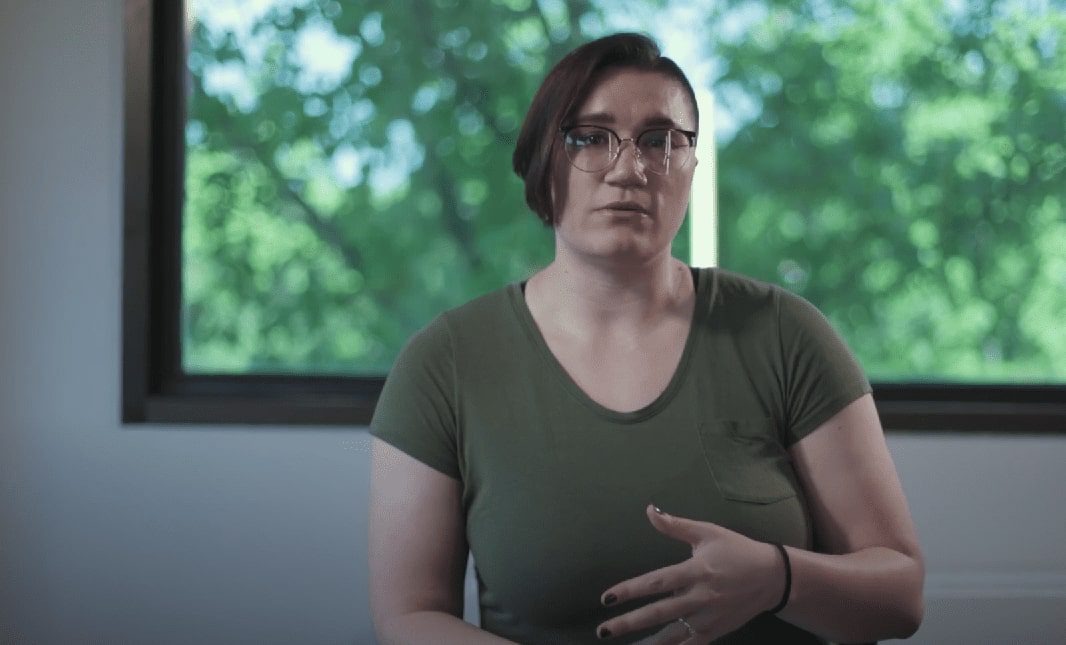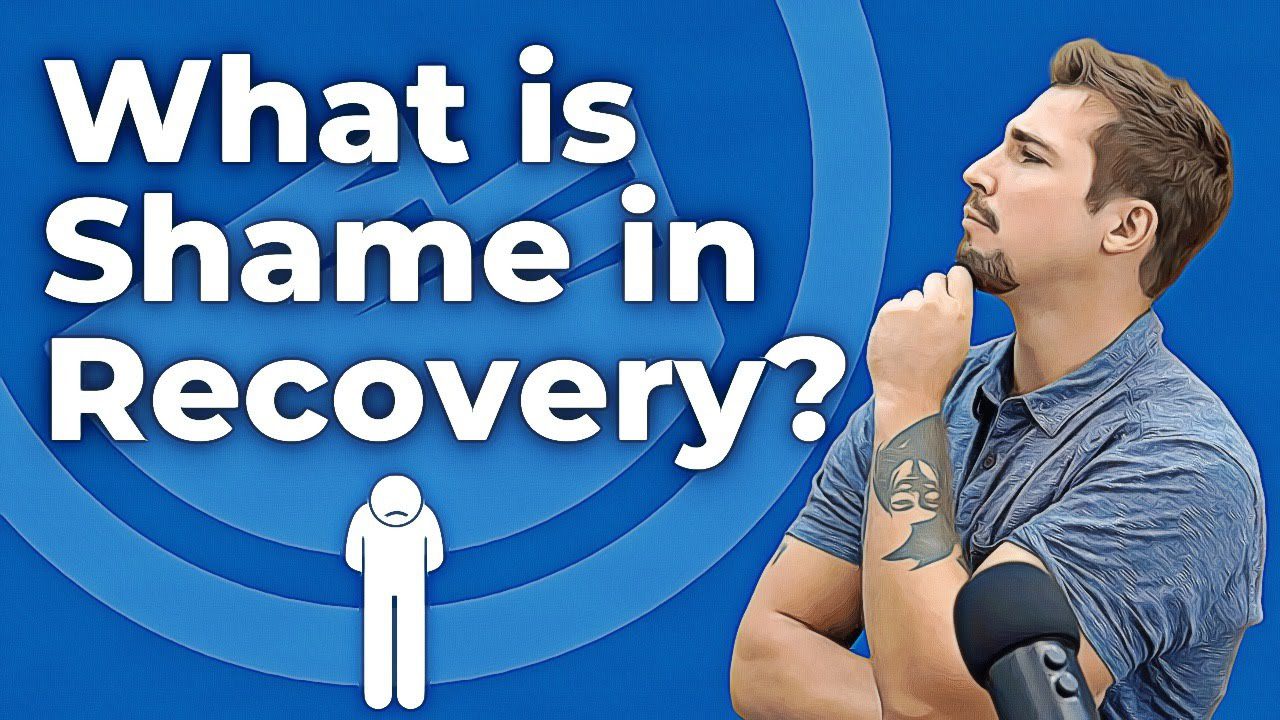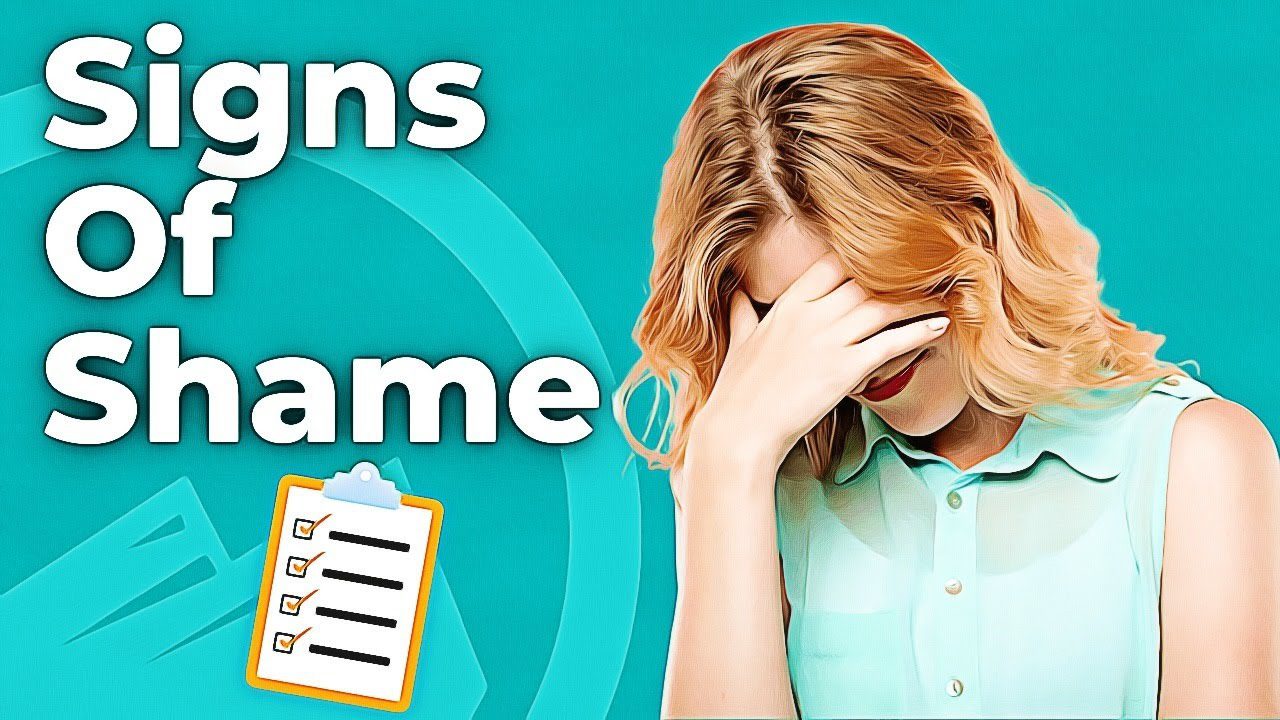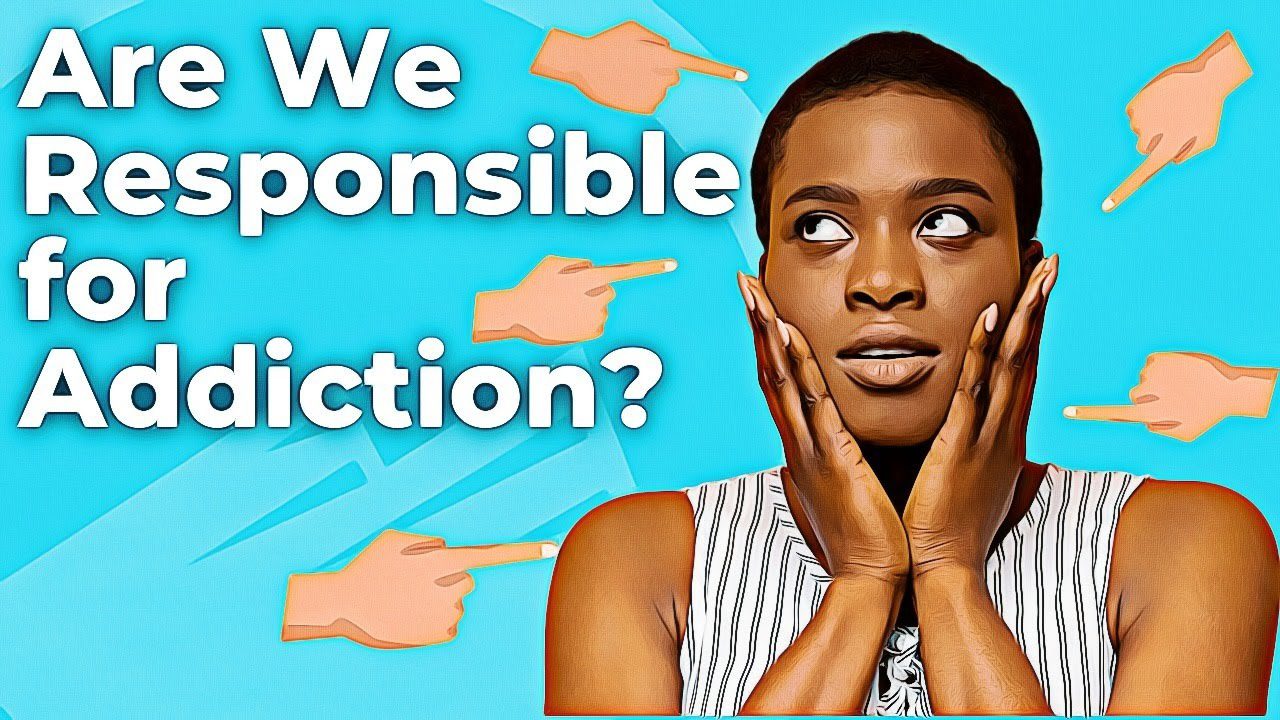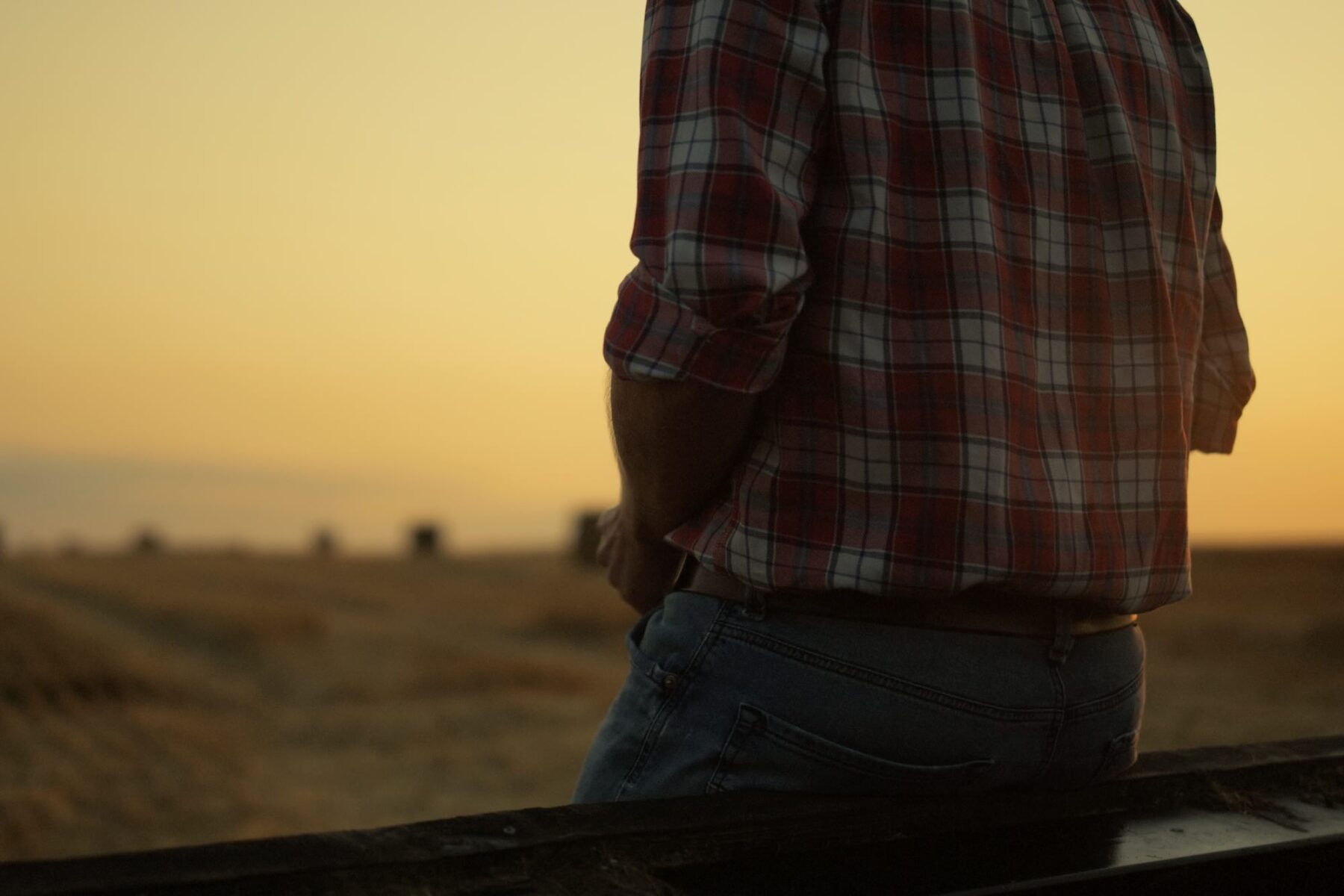What Is Shame In Recovery?
Why You’re Experiencing Guilt & Shame
When you’re struggling with substance abuse and addiction, you will do things you wouldn’t dream of doing sober, just to survive the day. When you’re dependent on a substance, you have to find a way to get that substance, and that dependence doesn’t often leave room for caring about the lengths you went to in order to satisfy your craving.
After beginning the journey to recovery, it can be very common to start feeling guilty and ashamed of the things you did while in active addiction. It can be easy to dwell on these dark emotions and to feel overwhelmed by them, but sitting in them for too long is a good way to set yourself up for a relapse.
What Causes Shame?
The Key Differences Between Guilt & Shame
While guilt and shame are very similar emotions, there are many differences between the two, and recognizing them is important. Guilt is when you feel bad about something that you’ve done, or committed to doing and then didn’t. For example, maybe you feel guilty about saying unkind things to someone while you were intoxicated, or making a promise to do something and then not following through.
Shame, however, goes a step further than guilt. While guilt is acknowledging and feeling bad that you did something you shouldn’t have, shame is internalizing guilt and believing that you, yourself are bad because of the bad things you’ve done.
Shame is considered to be a “self-conscious emotion” by many mental health professionals. Being able to differentiate between guilt and shame is important because it can influence your behaviors and reactions. For example, guilt often motivates you to apologize, correct a mistake, or make amends with someone you’ve wronged. Shame, on the other hand, influences actions that are self-destructive and thoughts that are negative and self-deprecating.
Why Shame & Guilt are Dangerous in Addiction Recovery
Dwelling in guilt will almost inevitably lead to feeling shameful. Shame cuts much deeper than guilt does, which is what makes it so dangerous. When you’re caught up in feelings of guilt and shame, you may begin to feel as though you deserve these bad feelings about yourself. Ultimately, you are punishing yourself for the things you did in your addiction, and that doesn’t do you, or the people around you, any good.
Are We Responsible For Addiction?
Breaking The Cycle of Guilt & Shame in Addiction Recovery
Breaking the cycle of guilt and shame that is often present in addiction recovery is no small task. Here are a few things you can do to bring yourself out of these feelings.
- Recognize That Feelings of Guilt & Shame are Counter-Productive. As you come out of active addiction, It’s easy to be overly critical of yourself as well as the things that you did while you weren’t sober. No one deserves to be plagued by guilt and shame, and dwelling on these emotions is nothing more than self-destructive.
- Ask For Forgiveness. Everyone makes mistakes. Choosing to change your life and fight against your addiction is an extremely courageous decision, and part of recovery is making amends and asking those you have wronged for forgiveness. While they may not be in a place to be able to forgive you immediately, you will have done your best to make amends and put your actions behind you.
- Let Go of What You Cannot Control. The only person you are truly in control of is yourself. There are so many things that are outside of your control that can’t alter or change, your past being one of them. Holding onto the things you did in active addiction, the guilt of hurting people, or the shame of having an addiction won’t help your recovery, it will only drag you backward. Letting go of the things in your past is a big step towards being free from addiction.
- Forgive Yourself. Learning to forgive yourself is a long process. Dwelling on the things that you’ve done in the past is not constructive or beneficial to you. Your past is not what matters, what matters are the choices you make today.
How Do You Deal With Shame And Regret?
How Sandstone Care Can Help
Understanding and confronting the shame and guilt you experience in addiction is a critical part of recovery. Dwelling on it and sitting in those toxic emotions only sets you up for a relapse. At Sandstone Care, our team of highly trained and passionate professionals is dedicated to helping teens and young adults to realize their full potential. This means personalizing each individual treatment plan in order to ensure that everything you’re going through is confronted and worked through.
Learn more about our levels of care and our treatment team here! If you are looking for community support, check out our alumni page for updates on sober events and gatherings or reach out to our alumni coordinator Kelly Butzer for more information.
How To Fight Shame In Recovery
So regret and shame. Let’s talk about those for a second. And let’s get practical, and I will. I personally believe that regret and we may talk later about guilt, I believe that regret and guilt are right and necessary for healing. I really do. And, by regret, what I mean is, is deep sorrow, deep sorrow for the wrongs we’ve done. The program of AA and NA talks about making amends, it means really taking to heart what we’ve done in wanting to make it right.
So I think regret, remorse, and guilt are absolutely necessary. I distinguish those and we’ll talk more about this probably today, Clint, I really make a distinction as to psychology between guilt and remorse on the one hand, and shame on the other. Now, the way that I’m going to talk about shame is that shame is only ever toxic, guilt is necessary guilt frees us to recover.
Shame paralyzes us, shame actually enslaves us. And so I realize it’s definitions, but it’s really important that at least people understand the way I’m defining them. And I’m trying to speak, you know, my background in psychology, there’ll be different languages for this year, there’s a tremendous literature on shame, I’m coming at it from a psychological perspective, and look at shame is only ever detrimental.
Now, now, having made that distinction, what’s to be done about this? You know, I’ve practiced for 10 years now, something I got very active early on, I’ve just, it’s okay if I speak personally. Yeah, I got very active early on in my recovery. 10 years ago, got very active in two different groups, I got very active in the 12-step approach, which worked with the sponsor to work the steps, and I was going to nearly daily meetings, really grateful for that, and did a lot of good work there.
There was, I think it was sometimes it’s kind of a supplement for me, I got also involved. My, doctoral dissertation was on mindfulness. And I practiced mindfulness for years, I actually practiced mindfulness through my addiction, which is sad to say, but I just want to say this, there’s no magic bullet for addiction, I could practice meditation, and still, be addicted. I’m exhibit eight because I did.
But I knew that for me, in recovery, that mindfulness would be one of the resources I really wanted to explore. So I did my due diligence and found a group that focused on mindfulness approaches to addiction, and it was called refuge recovery. It’s actually more aligned probably with a Buddhist approach to recovery. And I’m kind of equal parts Christian by background and Buddhist, that’s both traditions are very valuable to me.
The one thing that I longed for in the 12-step program that I felt was missing was this aspect, the mindfulness or meditation aspect. So I did both simultaneously. got very involved in both and was Secretary of both meetings, etc. And that’s just how I had to do it. It was in refuge recovery, that I learned a practice that is rooted in eastern traditions, and gets picked up for sure in western traditions, and I’ve followed it ever since then.
It’s simply called forgiveness practice. Now, this ties into your question about what I do as somebody who’s in recovery. What can I do to support my child who’s in recovery? One of the biggest pieces of recovery is how to deal with this thing that we’re talking about today, which is a shame. And the opposite of shame is self-compassion. So if we can develop a practice, and I’ve been practicing it daily, I did it this morning, I did it while I swim.
In the 12-step programs, they talk about moral inventory, it’s a way of doing moral inventory, which is that I look at anybody that I’ve wronged in the last 24 hours, doesn’t matter how big or how slight. And I and I practice with them, this forgiveness practice. And the practice has three components. It’s been developed for me for 10 years now. In fact, I did a CD on it.
And this is the CD I did a few years ago called the freedom of forgiveness. This is available online. I don’t, I’m not trying to sell it. I’m just wanting to give it as a resource. But what’s interesting since I developed a CD, probably four years ago, my practice has continued to develop and I probably will do a second revision of this. And here’s how it goes. It’s simple. And I’m looking at you as I say, this plant.
The first piece is can I grieve? Can I really hold regret, you asked about regret. Can I hold godly sorrow for what I’ve done to others? That’s the first piece and there’s a practice that you do this in your mind’s eye and I do it every day. I did it this morning. I do it every day to kind of keep thinking cleared out, can I hold sorrow for what I’ve done and extend that to the other person?
If it’s in my own inner work, if it’s in the outer relationship, usually it’s both. That’s the first piece of grief. The second piece is, can I have compassion for the other person? That is love and understanding and empathy for what they must have felt when I said, or did something, or maybe didn’t do something. And then turn that around? Can I have compassion for myself? For what it is that led me to do that?
Typically, it’s some version of me acting out some unpleasant emotion that can be related to trauma in the past or whatever. But it won’t do for me to be unkind to myself any more than to others. So that’s the second piece, grave compassion. And the third piece is, is forgiveness, and forgiveness is can if I’ve wronged you plant, can I ask you for forgiveness?
I’ve given and done these exercises with hundreds of clients, maybe 1000s of clients over the last 10 years, I don’t know how many, because I lead so many groups with this is the biggest piece of this, for many of them is the last piece which is, can I forgive myself, for what I’ve said to you or done to you or even thought about you. And this practice takes five minutes. I do it every morning. And it’s the most practical thing.
In fact, let me say this, I think if you go back over 10 years of my own recovery, this is the most significant tool for sustained successful recovery in my life that I can bear witness to. That’s the truth. I can’t speak for other people, because everybody has a different entry point. But if we’re talking about shame, when I entered into recovery, I honestly think that I spent about 90% of the time feeling awful about myself, which is really, if we just talked about shame in English, shame is feeling like I’m broken, defective, bad, all of that.
And I think I spent 9% of the time feeling that way. And it was coming out of long-term addiction that got worse and worse. And I just ruined everything in my life. I just felt horrible all the time.
And I thought I knew this, Clint. If I don’t find some way to navigate this, skillfully, it’ll be the end of me, it’ll be the death of me because I knew I wasn’t gonna be able to sustain recovery.
If I don’t manage the shame. The shame was so stressful for me. And it only led me to want to use it again to drink again. And so I realized I needed to find tools for dealing with this. The tools came in this form.
It’s only 10 years later, I got addicted to midlife cleanses my story. I was squeaky clean. And then I got into midlife I’m a statistical anomaly that way, but it happens it happened to me. And so 10 years in recovery, I can tell you now this is the truth is that I can still be vulnerable to shame. If you want to shame me, you can do it. You can find a way to do that. But it’s only 10% of the time Now am I vulnerable?
I’m not saying that I’m not pretending like I can’t be shamed. The fact is, I know what it’s like to not live in shame all the time. And 90% of the time now what’s replaced shame is self-forgiveness or self-compassion. And it makes all the difference.
So I want to extend this to parents. I don’t assume this is easy. I give this exercise to parents, if they can find a way to forgive themselves, forgive their children, and work this, it’s not a one-time deal. I can guarantee you that if you sell I record every day who I do this with, and I’ve done this for 10 years. If you looked at it, about 90% of my forgiveness practice is with the people closest to me, my wife, and my daughter, why is that?
Two reasons. One is I have the most contact with them. And secondly, I have the most skin in the game with them. And so the people that we hurt oftentimes are the people that were close to and we have to do a lot of work. I’ve done a lot of work on this over the years. Both my parents are deceased, I’ve visited and revisited and revisited this with them. It does work with repeated passes with regular practice. That’s the most practical thing I can suggest.
Why Do People With Addiction Feel Shamed By Society?
There was a study done recently at Johns Hopkins University, they have the best school of public health in the world is at Johns Hopkins.
I know this because my mom was a public health nurse and I learned this from her. And they did a study on all the diagnoses that you can have all the mental health diagnoses you’re probably aware of a client of the vaunted DSM is the Diagnostic and Statistical Manual of psychology and psychiatry has all the diagnoses of every version of depression, anxiety, PTSD, thought disorders, you name it.
And what they did in this study is that they asked American respondents to rank order which one of these diagnoses has the most negative judgment made towards it. Well, you know where this is headed. At the very bottom of the barrel is what the DSM calls substance use disorders. You’ll see as we’re talking, I actually prefer to use the word addiction, even though it’s a little bit outdated.
Only because addiction derives from the Latin term addicted, which means slave, and I think to be addicted is to be enslaved to substances. So I actually appreciate that nuance. Having said that, whether it’s addiction, substance use disorder, or whatever you want to call it far better, that you’d be depressed, far better to actually that you’d be psychotic, or better than you’d be autistic far better that you’d be virtually anything other than addicted, which is, if the definition of stigma is a negative social judgment, there you have it, there’s the most judgment of any disorder, it’s at the very bottom of the barrel. Now, psychology, that’s my background, as you know, psychology defines shame in a technical way.
I’ll unpack this psychology to define shameless self-stigmatization. Now, that’s a mouthful but just think about that for a second. If I internalize societal stigma, that is if I, if I buy that, and bring that inside myself, that’s really the definition of shame. from a psychological perspective, we’ll unpack shame in much more kind of user-friendly language in a few minutes, but I thought I want to do is tie in shame and stigma right from the get-go here with Hugh cleanse.
And that is, is that around in society, and we’ll talk about why this is the case, there’s more judgment about addiction than anything. And it’s next to impossible not to internalize, I don’t care what age you are in your addiction. It even gets more complicated here, Clint, because it’s not just being addicted. The crazy thing is there’s a stigma about being in recovery. Think about it for a second.
If active addiction has the highest amount of stigma, it’s the bottom rung on the ladder in terms of disorders. If I’m in recovery, what does that imply or indicate Well, it indicates I was addicted, not a good thing. So by that kind of guilt by association, whether I’m actively addicted, or actually committed in recovery, you still have a tremendous amount of stigma in general society.
Now, I’m glad to say it. I know this firsthand, all into my own history of addiction and recovery, that to get into support groups, such as 12-step support groups or other resources. One of the reliefs there is that there’s no stigma there, there’s no judgment ideally, and most of the time, there isn’t. That’s part of what’s saving about being in these groups because you’re with people that get it and don’t judge it.
But you step outside of those rooms, and it’s a whole different world. So just kind of out of the starting gate, if we can look at shame and stigma as being kind of two sides of the coin, and that they really do plague not only those who are in active addiction, which by the way keeps people in active addiction and I’m sure we’ll talk more about that, but it actually also sticks on your skin and it’s like having a scarlet a on your forehead addiction. And if you’re in recovery, you still have that scar.
Where Is Shame Felt In The Body?
I’ll tell you because I’ve done clinical work for over 40 years now. But and I’ll tell you the truth. I don’t know if I’ve ever had a client come in and say ever in 40 years say, Bob, I’m here to work with you on shame.
The fact is, is that for most of us, we don’t we don’t see shame. It’s invisible to us. So let’s talk about that for a second. Why is that the case? I think there’s that there’s a psychoanalyst Christopher bolus that talks about shame.
And he says, it’s the unthought known, you know it but you can’t think it, you know what, but you can’t think it and we can understand that from a brain perspective, easily enough. Let me start by saying that shame is the most stressful human emotion. So just as a horse would get skittish? Why wouldn’t humans get skittish with the most stressful human emotion? How do I know that? Or how do we know that in psychology? psychology measures stress by measuring elevations in stress hormones, the two primary stress hormones are cortisol and adrenaline. Most of us know about adrenaline, cortisol.
The second one, I’ll talk about cortisol, just a shorthand for both. The highest cortisol elevation of any human emotion is king. You just you, you, you put somebody in a situation where they experience that feeling, you measure their cortisol, their adrenaline elevation. What’s striking about it, Clint, it’s a higher elevation of cortisol than anger, you think, Well, wait, wait, wait, isn’t the anger more stressful? it’s higher than fear. it’s higher than fear. it’s higher than sadness. It’s the highest is the highest elevation, which is the same as the most stressful human emotion.
So how that works in the brain. If you think about the emotional center of the brain, right here in the middle of our brain, when survival is challenged, whether it be literal survival or emotional survival, back to the horses in humans, we have three different options.
One is to fight. What is the fight, one is to scramble, run, flee that flight, fight or flight, but there’s a third emotion or third response, and that’s a freeze response. I don’t know if in the I figure you have this in Indiana, we certainly I grew up in Central California. Do you have possums in Indiana? Yeah. When I grew up as a kid, I lived in rural Central California, I’d wake up in the morning, and there’d be more than a few dead possums on the road, which was disturbing. And I thought why is that? Well, it took me a while it probably asked about it is that possums what possums do when they see something that’s threatening their survival.
They freeze, they freeze, they play dead and, and so it works. If it’s a bear or a coyote where I grew up there with coyotes, it would work because a coyote doesn’t want to eat a pasta because they don’t want to get poisoned. They don’t know how long the pasta has been dead. But a Ford pickup doesn’t care. And but don’t it runs over and so possums unfortunately, died all the time on the roads. Well, we all have a possum inside of us. And that possum is what psychology called shame is that shame is a freeze response.
It’s like deer in the headlights. possum in the headlines. It’s a freeze response. So think about this. If shame is the most stressful human emotion and shame leads me to freeze that how does that show up? You’re asking what are some signs of shame? Most of us aren’t aware of it, because it’s like I said, is the unthought No, but there are signs of it.
I’ll tell you what, I’ll go back to the example with you and me, Clint, if I accidentally step on your foot, let’s I’m just gonna use that as the example. If I if I have a shame response, if I go down the rabbit hole of I can’t believe I did that again. What kind of loser does that he’s not going to like me to go down that litany of things like that. The chances are, I’m going to look to you like a possum, which in human language, I’m going to look indifferent. I won’t look alarmed or concerned, I’ll look flat, like I don’t care. I won’t be able to make eye contact.
You think about it when you’ve been ashamed. You can’t even make eye contact with somebody that’s too vulnerable. What happens for me when I’m ashamed, like if I step on your foot, if if I was trapped in shame, I literally want to crawl into a hole. I mean, just just get away from this. And so ironically, and sadly it leaves the other person feeling betrayed. Gosh, Clint says I thought Bob cared about me, but he doesn’t give a rip about me.
He stepped on my foot and looks like like it’s no big deal. And so it ends up leading to a breakdown in relationships because the person that shamed they don’t necessarily look like they’re alarmed because they’re in a freeze response. I think about this sometimes and I would say this to parents, is that when your son or daughter is trapped in an addictive cycle, you can bet your bottom dollar.
That part of what’s going on is they feel ashamed of themselves. Ironically, the shame because it’s so stressful will lead to continued addictive behaviors, and so you get locked in this vicious cycle. But if a parent can understand that in a shame cycle, it’s what I call situational sociopathy. All I mean by that is that your son or daughter isn’t a sociopath. a sociopath is somebody that can hurt somebody and not care.
Your child isn’t like that in their heart of hearts. But situationally, they may be because in addiction, shame is so much a part of it, it will be it really is sociopathic. But it’s socially but you have to kind of go a little bit deeper and realize this uncaring not giving a rip of exterior is just a cover is just a veneer over the fact it hurts so bad, I can’t even look you in the eye.
So that’s a little bit of what you can look at indirect indicators of shame. Now, that would be from the outside from the inside, I’d ask clients, I say, Well, what do you feel in your body? I realize you’re gonna ask me this, maybe later. But I’ve asked clients, what do you feel in your body around shame, and I’ve gotten a number of responses. And people will be able to identify who are watching this. A common one is I’ll break out into sweat, I feel my face turns red, I get hot in my body.
Sometimes they’ll talk about constriction in the throat, I can’t talk I just, it really is the body’s response to shame. But there’s a couple of other responses are interesting. I’ve been in psychology long enough that I started studying neuroscience before they had brain scans. And then in the last 20 or 30 years, brain scans have come around.
And they’ve corrected a lot of misunderstandings that we had nowadays. neuroscientist like at UCLA, they do brain scan research all the time, they’ve identified not only the brain that’s in our skull, but they talk about the heart brain is that there’s a there’s a you talked about neural networks, there’s there’s a concentration of neural fibers in the chest area, that are related to connection, they’re related to connection.
It’s actually not just poetry, when you say that person broke my heart, I mean, there’s a way that it really affects us physiologically. And and and neuroscientists actually call that part brain. I’ve got clients that have told me when they feel ashamed, they feel pain in their chest, they feel pain in their heart, and I think that’s quite literal.
And if you drop down to the the abdomen area, you’re aware of this research. More recently, in fact, the guy that’s done the research is in India, it’s Steven porges. And he’s been looking at their cranial nerves that extend down from the head down into the body, the 10th cranial nerve called the vagus nerve, it extends all the way down into into the gut area.
And there’s a lot of nervous fibers centralized in the abdomen. neuroscientists call this the gut brain, not meant to be disrespectful, it’s just what they call it. And the gut brain is activated around feelings of safety. So if they feel unsafe of my stomach will get activated. And people will oftentimes talk about this around shame. They, their their stomach hurts, they get acid, they have other digestive problems, etc.
And this would follow from Stephen Porges, his research on the gut brain, you think about shame, what is shame? Shame is if I step on your foot, you’re going to reject me. And if you think about this, evolutionarily, I need you, we need each other, we survive longer if we stay connected. And if I’ve done something that jeopardizes that, you can’t think of a much deeper unsafety than that, why wouldn’t my stomach hurt. So those are some of the personal or the physical signs of shame that come up.
And oftentimes, those tell us a lot more than what the person is thinking because I can ask somebody, they can be in an acute shame response. And if what we’re saying is true shame, is a freeze response. And that shame shuts down the frontal cortex. The last thing that somebody is going to be able to articulate is the shame they’re experiencing when they’re in it. Does that make sense? It’s not accessible. It’s not accessible. It’s not verbalized double, you can look at indirect indicators, but that’s about as good as it gets.
Are People The Cause Of Their Own Addictions?
Yeah, it’s a good question. And there’s a lot of emotion around this. And I know that I’m going to be speaking to a group of parents and family members, significant others and I speak in first person, both as somebody who’s recovering from addiction myself 10 years down the road, I know it from the inside. And before that I grew up in a family where there was addiction to my family.
So I really know both sides of this. And there’s a lot of emotion that runs around this one of my missions, Clint is probably why you reached out to me to begin with, is to help in any way I can to do what I call to unshaped addiction to reduce the shame. So I’m, I’m all for that. And we’ll see that that’s not maybe as as simple as it sounds, because it’s not to say that people aren’t responsible.
So here we are, with the paradox. I want to quote the psychiatrist Carl Jung, he said, he was talking to me more in general, but let’s tie it into addiction. He said, it’s not yours. That is to say you’re not responsible. He said, it’s not yours. But you’re 100% responsible. That gets both sides of a paradox. It’s not yours, but but you’re 100% responsible. Now let’s tie that into addiction.
One of my favorite resources. In fact, I’ve given this to clients that brought it in here with me, let’s see. This is the book that that goes with the video, you’re probably familiar with the pleasure run woven by Dr. Kevin McCauley, he’s got two videos out, oh, here they are right here. This first one, please run woven I just showed you the booklet. This is the video. The other one, the more recent is memo itself.
These are two of the best resources for parents. And I really want to recommend this to any parent or family member that’s viewing this, what Dr. McCauley talks about. He also is not only a physician, but knows addiction from the inside, and has committed to recovery for years and years, he’s made a huge amount of difference in the recovery world only to his story.
What he speaks of helps us to understand Carl Young’s statement. And what Dr. McCauley says is that addiction is a disease of choice. And we can talk more about this in terms of what that means in terms of brain and body because it’s very important to understand that even at a basic level. So here’s the tricky part. And I’m going to speak firsthand, Clint, and you can relate to this or relate to people you’ve worked with, is that in active addiction, the part of our brain that makes decisions, that uses good judgment, that looks at the consequences, future consequences of current actions, that is able to control impulses, all of those things are housed in the forebrain.
The front part of our brain is sometimes called the frontal cortex. In active addiction, you’ve seen these videos, I would imagine most of my clients have done and if they haven’t, I showed them in active addiction, the forebrain goes dark, it goes offline, and what gets lit up is the reward center of the brain, which is right between my AirPods it’s right between my ears. That’s the midbrain. So midbrain forebrain. The midbrain gets activated in active addiction, it shuts down the forebrain. So the crazy part, and this is what Dr. McCauley is saying, the part of me that makes good choices is functionally offline.
So in that sense, there’s a way we’re not responsible. And I want to talk about how we are responsible is that no one would get addicted, that they never picked up the first drink, or the first drug, whatever it was, it’s a little bit tricky to blame somebody for doing that. Because around 10 to 25% of people don’t stop that is to say 10 to 25%. The statistics vary on this stay addicted. So it’s a little bit unfair to say, well, you picked up a glass of beer and it’s all your fault.
But there is a thing that puzzled me clean. And I’d love to hear your thoughts about this, too, is that if brain science tells us that the forebrain goes offline in active addiction, how does anybody recover? And people do and it’s an amazing thing that people still find a way to grab a hold of recovery and sustain it successfully.
When early on, there’d be no way to explain that from brain science. I think for me, I’ll tell you the truth on this one, Clint, even though I’m a psychologist by background, you and I started by talking about this, I cared deeply about spiritual resources. I see that as a spiritual thing I really do.
And people will have different ways of articulating that the 12-step program talks about a higher power and leaves it open to you that whether you call it God or the universe or higher power, there’s something that grabs us by the back of our collar and drags us out of active addiction and medicine can’t most modern medicine can’t explain it.
You look at a functional MRI brain scan of somebody with an active addiction. There’d be no way to understand how that person would say I’ve got to stop They would hit bottom and have a moment of clarity. And I work day in and day out with people that have had that experience, and it does turn their lives around. So there you have it. So back to young, it’s not yours it’s a disease of choice, and you’re 100% responsible miracles happen.

